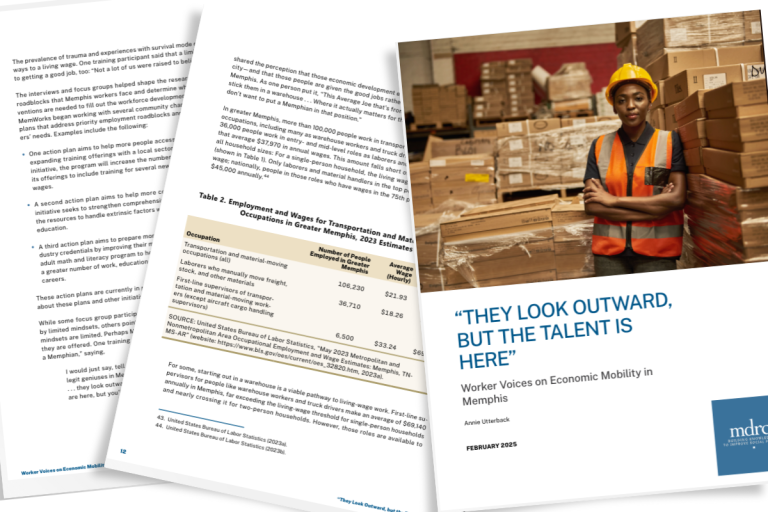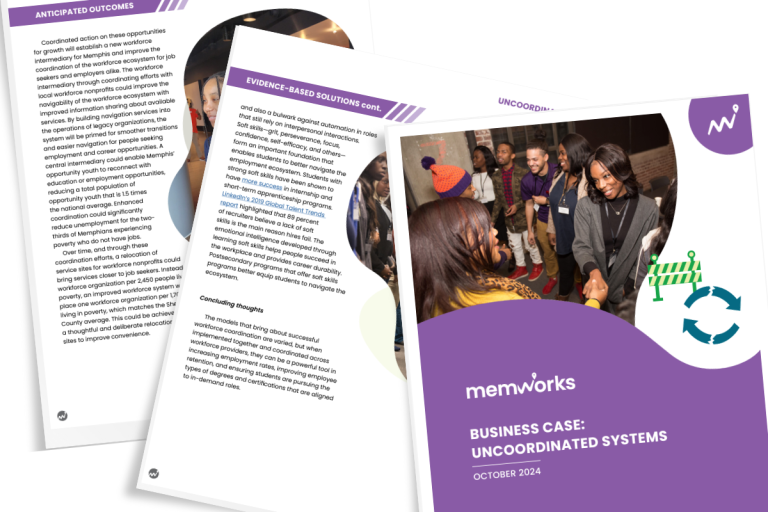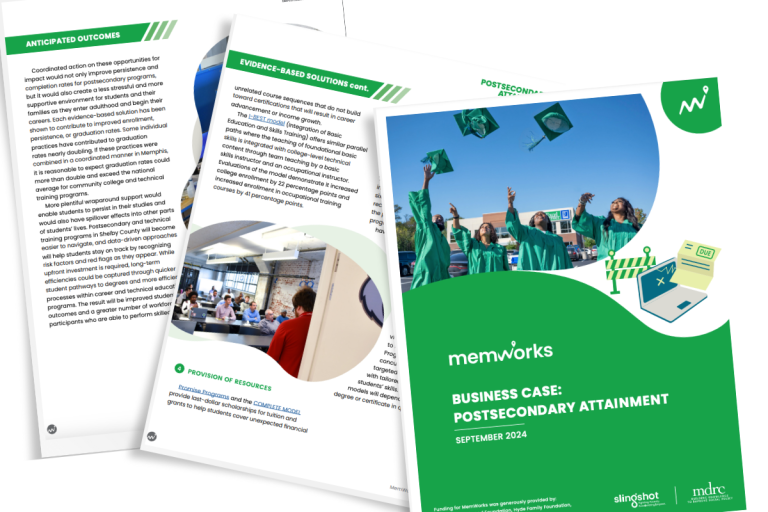Justice-impacted people face significant barriers to economic stability, employment, and successful reentry into society, often compounded by other significant roadblocks and resulting in increased recidivism
MemWorks has helped us identify the root causes that are impeding employment pathways for Memphians experiencing poverty. An accurate understanding of these roadblocks is absolutely essential, but without knowing how to effectively overcome these roadblocks, we are still unable to enable pathways to living-wage jobs.
We are excited to share evidence-based interventions that can help our community overcome these roadblocks. We are wrapping up our series this week on additional roadblocks that we acknowledge pose similarly severe challenges to Memphians. Because these roadblocks are not a core focus of the MemWorks effort, our research is focused and less expansive. We continue to maintain the same research standards across our work. This email introduces evidence-based practices to alleviate the challenges that justice-impacted people face as they pursue living-wage careers.
Up to six in 10 formerly incarcerated people are not employed in the formal job market and only 55 percent of them have reported wages within 12 months of their release
Shelby County has a disproportionate number of justice-impacted job seekers. Upon release from incarceration, these adults face extraordinary challenges returning to their communities, including limited eligibility for affordable housing, driver’s license revocations, and jobs that pay less than a living wage. On top of these challenges, many formerly incarcerated and justice-impacted people are categorically excluded from job opportunities, which inhibits their ability to adequately address the challenges they face, like finding a suitable place to live that they can afford. Many workforce organizations, policymakers, and employers are working diligently to create opportunities in Memphis for justice-impacted people. We’re excited to share some of the evidence-based practices that are making a difference today.
Evidence-based solutions can reduce recidivism and improve job opportunities
Most programs that help people reenter society after being incarcerated have focused exclusively on helping people obtain a job, with programming ending when the job starts. Research on reentry programs that have produced effective outcomes concludes that a more holistic approach is required. Services associated with effective reentry programs include employment retention support, individualized mentoring, and mental health services.
Several evidence-based approaches in Memphis are leading the charge in addressing challenges for justice-impacted people

Center for Employment Opportunities deploys its nationally recognized evidence-based model to support formerly incarcerated people, focusing on employment as the key factor to reducing recidivism. CEO not only offers immediate employment opportunities upon release but also provides ongoing support for job retention, helping its participants build financial stability and develop critical skills.

Economic Opportunities (EcOp) developed the “Shepherds Work” model that offers tailored support, mentorship, and sustainable employment opportunities to justice-impacted job seekers. EcOp places participants in jobs alongside a shepherd who helps guide and support them through their work.
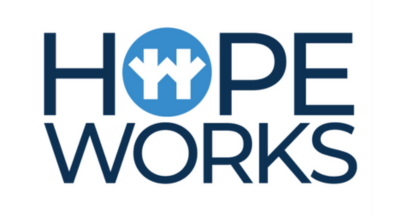
HopeWorks focuses on aiding people impacted by the justice system and those reentering the community by providing a suite of programs designed to reduce recidivism and support holistic re-entry. The approach encompasses comprehensive support services, including counseling, mentorship, education, technical training, and job support.
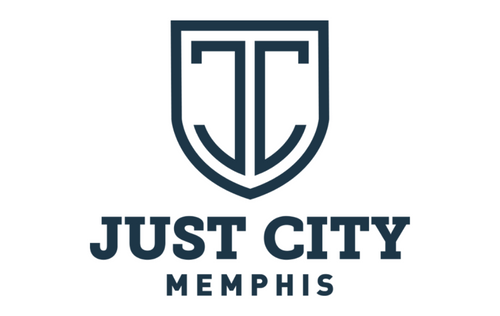
Just City works to reform the criminal legal system in Memphis to make it more fair and transparent. Its efforts focus on helping people who can’t afford bail, expunging criminal records to improve access to jobs and housing, observing courtroom procedures to improve fairness, and advocating for policy changes to reduce unnecessary incarceration due to someone’s socio-economic status.

Juvenile Intervention and Faith-based Follow-up (JIFF) targets at-risk youth aiming to steer them away from the criminal legal system through a mix of mentorship, vocational training, and support services.
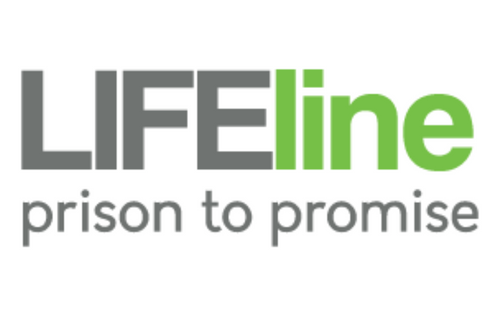
LifeLine to Success The organization provides education, skill-building, mental health services, and various engagement opportunities aimed at fostering personal growth and community involvement.
While much of MemWorks research has focused on gathering examples of best practices from outside of Memphis that could be applied in our community, this roadblock is an exception. We have several organizations that are applying evidence-based approaches to support justice-impacted people. While there are always models and practices that can be adapted from around the country, we feel focusing on expanding access to these existing efforts can help justice-impacted job seekers overcome this roadblock on their path to a living-wage career.

